This article was co-authored by wikiHow Staff. Our trained team of editors and researchers validate articles for accuracy and comprehensiveness. wikiHow's Content Management Team carefully monitors the work from our editorial staff to ensure that each article is backed by trusted research and meets our high quality standards.
wikiHow marks an article as reader-approved once it receives enough positive feedback. In this case, 92% of readers who voted found the article helpful, earning it our reader-approved status.
This article has been viewed 292,444 times.
Learn more...
Having a good poker face means not expressing positive or negative reactions to the game, keeping your body in a relaxed position, and calmly interacting with other players. This can become difficult when tensions are high but is necessary when playing the game. But by mastering and applying certain techniques, you'll be able to relax your face and keep from unknowingly communicating important information through your body language. After mastering the poker face, you'll be winning games of poker in no time!
Steps
Keeping Your Face in Check
-
1Relax your face. Your face is the first giveaway that could cost you a game of poker. Keeping your emotions and reactions in check regarding hands dealt to you is a key part of poker. Any type of expression sacrifices your power in situations with your opponents. Clear your mind, wiggle your face to loosen the muscles, take a deep breath, and relax.[1]
- You want to be in control of the situation and if you’re too stressed, you can lose that control.
- Hiding your reactions is power because no one knows what you’re thinking or what you’re about to do.
-
2Maintain eye contact with others. You can win the upper hand by showing people you are confident and intimidating by locking eyes with them. Meeting people’s eyes also shows that you have nothing to hide so they don’t know what to expect from you. Look at the bridge of their nose to stare them down and keep your focus.[2]Advertisement
-
3Blink occasionally to avoid staring. Staring into space or focusing too hard on your cards is also how your poker face can be compromised. It either shows that you aren’t paying attention, or that you’re concerned for your hand and chances. Remind yourself to blink so that your eyes don’t dry out while you concentrate.[3]
- Excessive blinking can also show nervousness, so don’t go overboard. There’s a balance between blinking enough to keep from staring and keeping your eyes focused so they don’t flit around.
- Staring too hard can also cause your shoulders to bunch up and posture to suffer.
- Focusing too hard on one thing visually can also distract you and you may miss an important play.
-
4Keep your lips together and jaw relaxed. Your mouth is the main support for your face muscles and any tension, smile, frown, or smirk will influence the rest of your face. Relax your jaw first by letting it go slack, creating space between your back teeth.[4] Open and close your mouth a few times to help relax as well.
- Avoid showing your teeth. Whether it’s for a small grin or grimace, visible teeth means your mouth is moving and movement can give you away.
- Don’t grind your teeth. Your jaw will show the pressure your teeth are under.
-
5Look straight ahead. Don’t look up or to the left or right out of the corners of your eyes. These are all tells which are little clues to your opponents that you have something to hide, whether it’s a good hand of cards or bad. It’s hard to do, but minimize your eye movements. Even squinting or excessive eyebrow raises can give away your reaction.
-
6Wear sunglasses to conceal where you are looking. To protect yourself, wear sunglasses so you don’t have to worry about giving anything away with your eyes. Sunglasses won’t be a problem indoors if you have enough lighting.
Improving Your Body Language
-
1Relax your posture. Take a deep breath, raise your shoulders to your ears, and let them drop down. Arch your back and then let it settle into a natural, upright position. Shake out any tense limbs and roll your head around on your neck. All of these will help you get back to a proper posture and break up any tension you have built up that will reveal your anxiety.
-
2Avoid fidgeting or adjusting your body or clothes. Whether you’re excited or nervous, small twitches are a big giveaway to your emotions.[5] Take a mental note to see if you’re exhibiting any little movements that come from nervous energy. Pay attention to yourself to make sure you’re not demonstrating any of these tics:
- Knuckle cracking
- Fingernail biting
- Tapping fingers
- Leg cracking
- Pulling on your collar or tie or shirt sleeves
- Rubbing your face, hands together, or arms[6]
-
3Divert any tension to something else. Hold a stress ball or curl your hand into a fist to take any tension your body is storing. It can be hard to make yourself relax your entire body, so if you have to tense up, try allowing only one part of your body to hold that stress.
- Conceal any movement or tension that you have. For example, hold your fist under the table or press your knees together to redirect any tension to where no one can notice it.
- Don’t grip your cards too tightly or you’ll have white knuckles which will show.
Maintaining a Neutral Voice
-
1Speak with an even and balanced tone. Your voice is also capable of revealing your emotions. A quiver in your voice or jumping to another octave while speaking is an easy tell for your opponents. Clear your throat or take a full breath before speaking so that you have enough air to talk in a neutral register.
-
2Keep your words few and simple. Stick to the facts of what’s happening and you won’t need too many words. Stumbling over your sentences, stuttering, or saying “um” too many times shows that you are nervous or unsure of yourself. Short, sweet, and to the point is how you should talk when in high-stress situations.
- One-word answers are acceptable, especially in high-stakes games like poker. You need to concentrate more on the game anyways rather than shooting the breeze with your opponents.
- If you're playing a game with friends and there isn't real money at stake, the atmosphere may be a little more relaxed so talking may more appropriate. Just watch yourself when examining your hand.
-
3Nod your head if you aren’t comfortable speaking. When asked a question by the dealer or someone else, it’s acceptable to simply answer “yes” or “no” by nodding or shaking your head. If you don’t feel comfortable opening your mouth because you’re afraid that your voice will give you away, simply use relaxed body language to convey your answer.[7]
- To distract yourself and keep from speaking, chew gum or keep snacks at the table.
- It helps to think about what you want to say before you speak. That way you can keep yourself from sounding excited or disappointed.
-
4Confuse your opponents by talking constantly. To be completely counter-intuitive, instead of staying silent you can comment on every hand dealt or result. You can pepper in false reactions too to throw your opponents off. Constantly talking can also distract your opponents by diverting their attention from the game to whatever you're saying.
- Bluffing is an important part of poker. For example, you can receive a bad hand and pretend like you just got a winning hand.
- If you're consistently inconsistent with your reactions, no one will be able to guess your true reactions. This is much harder to do but can work in your favor.
Community Q&A
-
QuestionHow do I keep a poker face without being bored?
 Christopher JonesCommunity AnswerTo prevent being bored, keep reevaluating information while you are maintaining your poker face, such as facial feature positioning and blinking. Plus, you shouldn't be bored as you should also be assessing other in-game things such as pot odds, implied odds, tells, assessing an opponent hand range, and even your next action depending on how your opponents act on the current street.
Christopher JonesCommunity AnswerTo prevent being bored, keep reevaluating information while you are maintaining your poker face, such as facial feature positioning and blinking. Plus, you shouldn't be bored as you should also be assessing other in-game things such as pot odds, implied odds, tells, assessing an opponent hand range, and even your next action depending on how your opponents act on the current street. -
QuestionHow do I keep a poker face all of the time, not just in specific situations?
 Community AnswerPractice a ton! If you spend a long time practicing your poker face, it will start to come naturally to you.
Community AnswerPractice a ton! If you spend a long time practicing your poker face, it will start to come naturally to you. -
QuestionHow do I keep an unreadable face while I am mad about something happening in the moment?
 Community AnswerPractice helps a lot! If you're really mad, then try taking deep breaths and acting like you don't care.
Community AnswerPractice helps a lot! If you're really mad, then try taking deep breaths and acting like you don't care.
Warnings
- You could think of mundane things like chores or a grocery list to distract yourself from the game and maintain a neutral expression. But be wary of getting too distracted that you don’t pay attention to the game.⧼thumbs_response⧽
References
- ↑ http://roleplayingtips.com/readissue.php?number=139
- ↑ http://www.mensxp.com/work-life/corporate-skills/604-perfecting-your-poker-face.html
- ↑ http://roleplayingtips.com/readissue.php?number=139
- ↑ http://www.blackenterprise.com/career/misses-with-attitude-mastering-the-poker-face-for-career-success/
- ↑ http://www.mensxp.com/work-life/corporate-skills/604-perfecting-your-poker-face.html
- ↑ http://www.mensxp.com/work-life/corporate-skills/604-perfecting-your-poker-face.html
- ↑ http://roleplayingtips.com/readissue.php?number=139
About This Article
Having a good poker face is all about looking relaxed and not showing emotion. Take a deep breath and relax your facial muscles to hide what you’re thinking and feeling. Make normal eye contact with people so you always seem confident. Look straight ahead and avoid glancing around, which can be a sign that you’re hiding something. In addition to keeping a blank face, you should also avoid any kind of fidgeting, like tapping your fingers, touching your hair, or cracking your knuckles, which can give away your emotions. If you’re struggling to contain your nervousness or excitement, squeeze your fist under the table or press your knees together to relieve the tension. For more tips, including how to maintain a calm tone of voice while playing poker, read on!



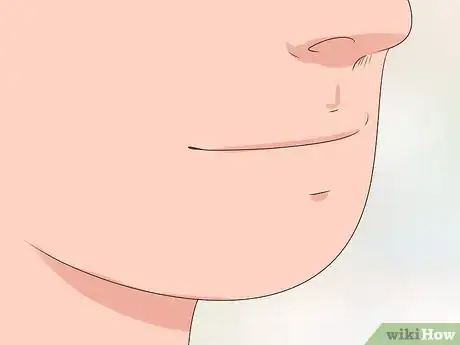



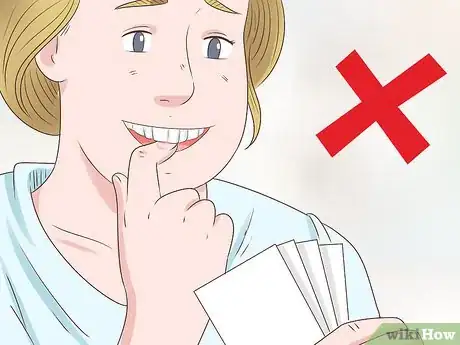


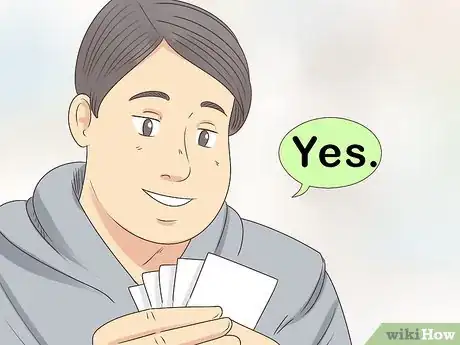

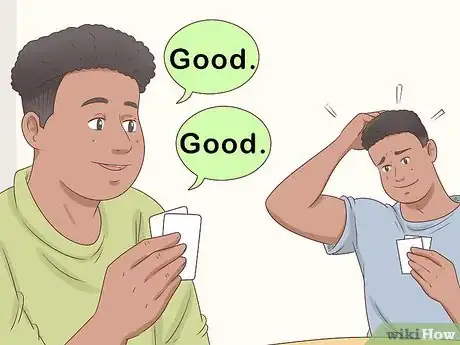
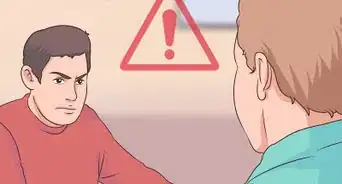
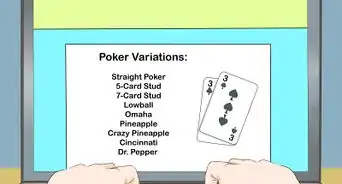
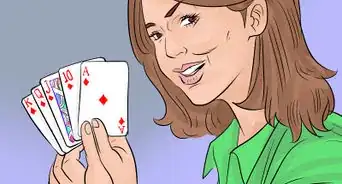
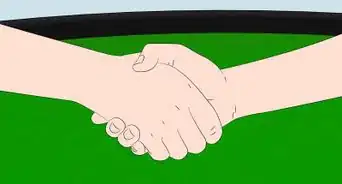

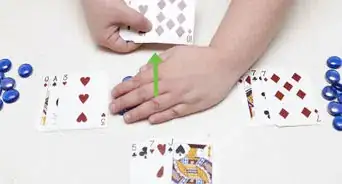


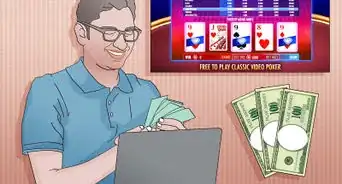
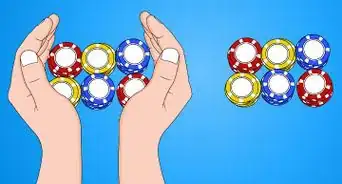
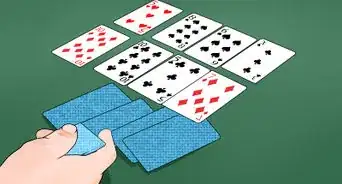
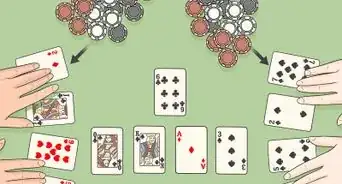
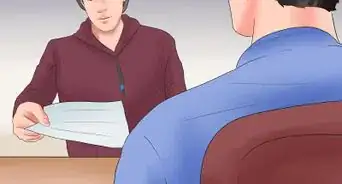










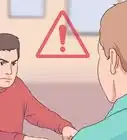
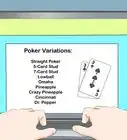
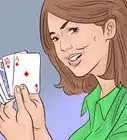




































Medical Disclaimer
The content of this article is not intended to be a substitute for professional medical advice, examination, diagnosis, or treatment. You should always contact your doctor or other qualified healthcare professional before starting, changing, or stopping any kind of health treatment.
Read More...